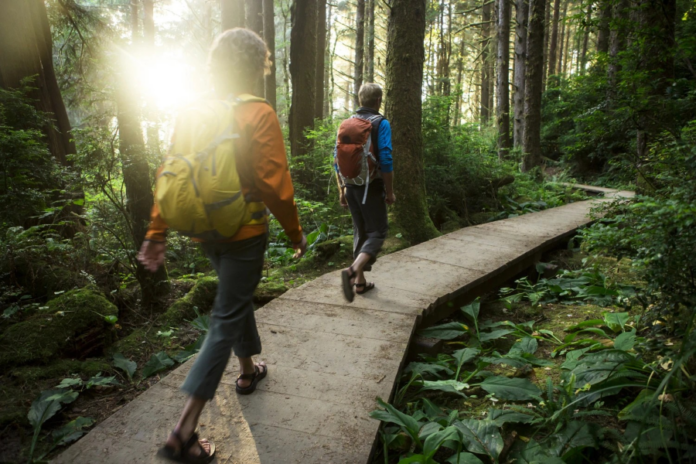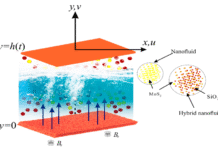A recent study by van Megen, L., & Anthony, B. P. (2025) titled “Exploring Community-Based Wildlife Tourism from an Environmental Justice Perspective: A Case Study of the Wild Olive Tree Camp in South Africa,” published in Human Ecology, reveals that community-based wildlife tourism (CBWT) provides short-term benefits like employment and financial gains but risks reinforcing neocolonial dependencies and long-term inequalities.
“
Community-based wildlife tourism provides short-term economic benefits but reinforces neocolonial dependencies, limiting local agency, land rights, and long-term sustainability in South Africa.– van Megen, L., & Anthony, B. P. (2025
The article “Exploring Community-Based Wildlife Tourism from an Environmental Justice Perspective: A Case Study of the Wild Olive Tree Camp in South Africa” by Lizzy van Megen and Brandon P. Anthony examines the intersection of community-based wildlife tourism (CBWT) and environmental justice (EJ) within the Kruger to Canyons Biosphere Region, South Africa. The study explores whether CBWT can foster equitable land management and provide lasting benefits to local communities while critiquing its potential to reinforce neocolonial dependencies. Using an environmental justice framework, the research delves into historical land dispossession, apartheid-era segregation, and the neoliberal conservation model, which often prioritizes market-driven approaches over local empowerment. The authors investigate how tourism management structures contribute to power imbalances, limiting local agency, knowledge access, and land rights. The study also critiques “green grabbing” and territorialization—processes that have historically marginalized indigenous communities from their lands under the guise of conservation. Ultimately, this research contributes to broader environmental justice scholarship by contextualizing South Africa’s historical and socio-political realities within modern conservation efforts. It calls for a fundamental restructuring of tourism governance to ensure sustainable community-led economies that restore agency over environmental resources and break cycles of dependence. The findings offer critical insights for policymakers and conservation practitioners striving for a more inclusive and just tourism model.
How the Study was Conducted
The study employs a qualitative case study methodology to examine the role of community-based wildlife tourism (CBWT) in promoting equitable land management through an environmental justice (EJ) lens. Focusing on the Wild Olive Tree Camp (WOTC) in the Kruger to Canyons Biosphere Region, South Africa, the research explores historical land dispossession, conservation challenges, and tourism’s role in shaping local livelihoods. The Wild Olive Tree Camp was selected due to its historical significance in land dispossession and conservation efforts. The Manyeleti Game Reserve (MGR), where the camp is situated, serves as a microcosm of broader socio-political struggles related to post-apartheid land ownership, access to environmental resources, and the integration of local communities into tourism economies. The research was conducted between April and July 2023, involving 23 participants across five categories:Tourists visiting WOTC, Staff of WOTC, Citizens of Welverdiend, Managers in the WOTC business, and employers in the regional wildlife tourism industry. Data was gathered using semi-structured interviews (lasting between 30 and 90 minutes) and a focus group discussion. Participants were recruited through snowball sampling, ensuring diverse perspectives. The study was conducted in collaboration with local organizations, including the University of Witwatersrand, K2C NPC, and Indalo Inclusive.
Participants provided written or verbal consent, with anonymity ensured through coded identifiers based on their group. Ethical compliance emphasized confidentiality and transparency, fostering community trust and collaboration in the research process. Using thematic analysis, interview transcripts were coded into themes such as land claims, conservation benefits, tourism-related dependencies, economic challenges, and environmental justice perspectives. The study aimed to: assess local perceptions of post-apartheid land ownership structures in Manyeleti Game Reserve. Evaluate how CBWT contributes to or disrupts neocolonial power dynamics. Analyze the short- and long-term impacts of neoliberal mechanisms on tourism and local communities.
What the Authors Found
The study found that community-based wildlife tourism (CBWT) provides short-term benefits like employment and financial gains but risks reinforcing neocolonial dependencies and long-term inequalities. Local communities acknowledge tourism’s benefits but remain affected by historical land dispossession, calling for greater integration of Indigenous knowledge into conservation. Fences around protected areas symbolize colonial exclusion, restricting both physical and psychological access to land. The COVID-19 pandemic exposed economic vulnerabilities, highlighting the need for local economic resilience over global reliance. Wildlife is seen as a renewable resource essential for both tourism and community well-being. While tourists often hold misconceptions about rural South Africa, CBWT can reshape global perspectives through direct engagement. The study urges a critical reassessment of CBWT structures to ensure greater local autonomy and sustainable community-led economies.
Why is this important?
Addressing Historical Injustices
The research highlights the need to acknowledge and address historical trauma related to land dispossession and segregation in South Africa. By promoting equitable land management and the inclusion of local communities, the study seeks to rectify past injustices and create fair opportunities for all.
Promoting Environmental Justice
The study contributes to the broader environmental justice framework by examining how CBWT can help distribute environmental resources and benefits more equitably. This is crucial for ensuring that marginalized communities have access to and can benefit from their natural resources.
Restructuring Power Dynamics
By analyzing the neoliberal approach to conservation and tourism, the study emphasizes the importance of restructuring power imbalances in tourism management. This aims to ensure that local communities have a say in how their lands and resources are used, leading to more sustainable and just practices.
Enhancing Community Well-being
The practical implications of the study suggest that CBWT can provide short-term economic benefits to local communities, enhancing employment opportunities and community morale. This is significant for improving the quality of life for individuals living in these regions.
Informing Policy and Practice
The study provides valuable insights for policymakers and practitioners on how to develop more inclusive and equitable conservation and tourism practices. By integrating Indigenous knowledge systems and addressing neocolonial dependencies, the research offers a pathway toward more sustainable and just environmental management.
Educational Value
The findings of the study underscore the importance of educating stakeholders about the historical and contemporary challenges in conservation and tourism. This can foster a more inclusive approach and encourage the integration of diverse perspectives in environmental management.
What the Authors Recommended
- The authors recommend acknowledging historical trauma from segregation and apartheid to foster equitable land management and conservation.
- The study emphasizes the need to restructure power imbalances in tourism by ensuring fair access to land rights and knowledge for local communities.
- To promote sustainability and justice, the author advocates for the integration of Indigenous knowledge into conservation efforts.
- Community empowerment should be prioritized through job creation and initiatives that enhance local morale. Additionally, inclusive policies must be developed to support land restitution and ensure equitable conservation practices.
- Lastly, the authors stress the importance of educating stakeholders on both historical and contemporary challenges in tourism and conservation to encourage a more just and inclusive approach.
In conclusion, the study by van Megen and Anthony sheds critical light on the complexities of community-based wildlife tourism (CBWT) in South Africa, highlighting both its potential benefits and inherent challenges. While CBWT offers short-term economic opportunities, it also risks perpetuating historical inequalities and neocolonial dependencies if not carefully restructured. By integrating Indigenous knowledge, addressing land dispossession, and empowering local communities, tourism can become a vehicle for true environmental justice rather than a continuation of exclusionary conservation models. Moving forward, policymakers, conservationists, and stakeholders must collaborate to ensure tourism fosters sustainable, community-led economies that restore agency and create lasting change.
















 The African Research (AR) Index is a comprehensive scholarly directory and database focused explicitly on journal publishers that publish and disseminate African research.
The African Research (AR) Index is a comprehensive scholarly directory and database focused explicitly on journal publishers that publish and disseminate African research.

